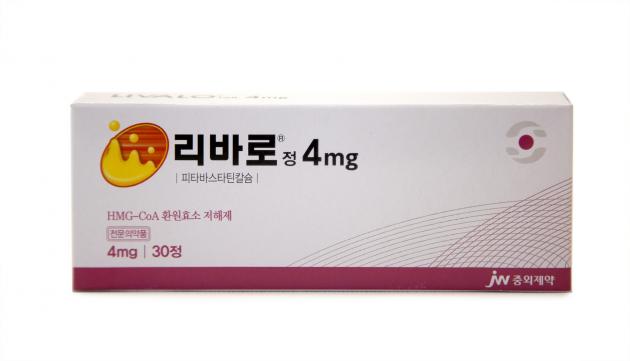JW Pharmaceutical said Wednesday it has reaffirmed the safety and effectiveness of its hyperlipidemia drug Livaro, through a large-scale clinical study conducted on Korean patients.
Foreign governments had already approved Livaro for not triggering diabetes, a phenomenon that had occurred with other statins, the company said.

“Cardiac diseases that cause multiple cardiovascular complications are one of the four leading causes of death in Koreans,” said Professor Jeong Myung-ho 정명호 of Chonnam National University, who led the LAMIS and KAMIR studies. “We have proved its effectiveness and safety from diabetes through the clinical trial on Korean myocardial infarction patients.”
The domestic clinical trial, LAMIS II, confirmed improved blood glucose levels and reduced incidences of major adverse cardiac events (MACE) in acute myocardial infarction patients, the company said.
LAMIS II studied 1,101 Korean patients with the disease in 11 local hospitals from 2010 to 2013. The patients took 2mg or 4mg of Livaro (ingredient: pitavastatin calcium) for 12 months. The results showed MACE occurrence rate stood at 9.1 percent, which was significantly lower than those found in the KAMIR study, proving its superior effectiveness, the company said.
The KAMIR study found that those who took statins had a MACE occurrence rate of 14.5 percent, and those who did not take statins had a 20.4 percent occurrence rate.
The drug also does not give rise to diabetes and had the effect of decreasing blood sugar levels, JW중외제약(CEO: Lee Kyung-ha이경하) said.
The study found fasting blood sugar levels decreased by 20-25mg/dL after one year of taking the drug, indicating statistical significance, according to the company. The drug also did not influence glycosylated hemoglobin (HbA1c).
“The large-scale domestic trial confirmed Livaro reduces the risk of cardiovascular disease while providing diabetes safety in Korean patients with acute myocardial infarction,” said Professor Hong Young-jun홍영준, also of Chonnam National University. “The drug is a good choice for patients with the disease who need to take long-term treatment for hyperlipidemia.”
The findings were published in the July edition of the Korean Journal of Internal Medicine.

